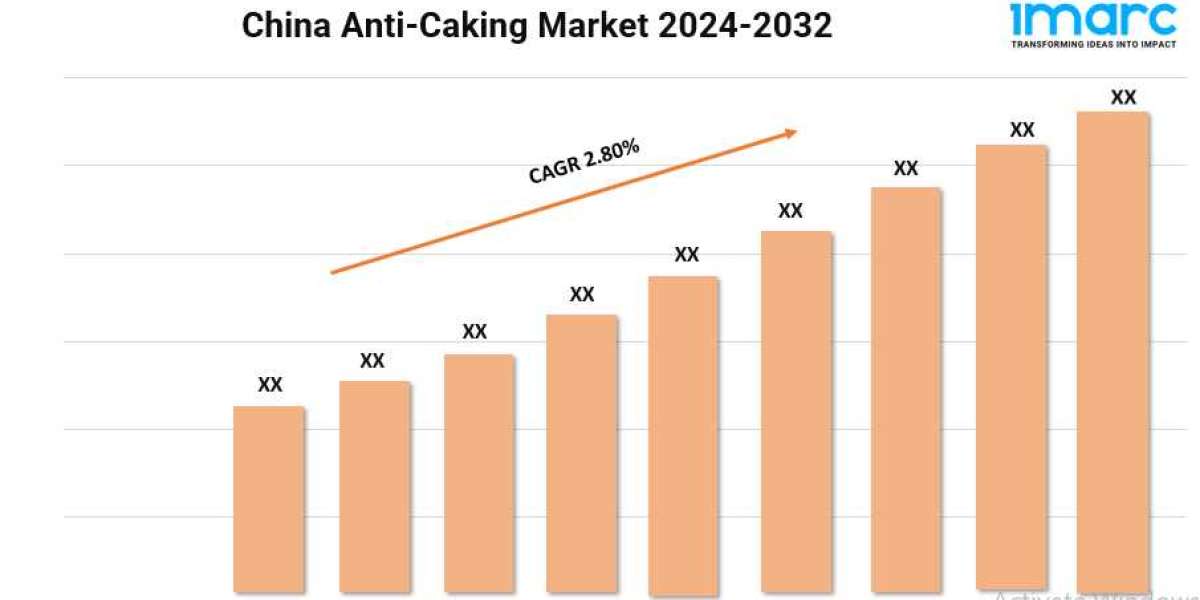Introduction :
The integration of Artificial Intelligence (AI) into healthcare has ushered in a transformative era, particularly in the realm of diagnosing and detecting patient health conditions. AI’s capabilities in analyzing vast amounts of medical data, recognizing patterns, and providing predictive insights are revolutionizing how healthcare professionals detect, diagnose, and manage diseases. This blog explores how AI is making a significant impact on patient health detection, its benefits, and the challenges that come with this technological advancement.
1. The Rise of AI in Healthcare
Artificial Intelligence, characterized by its ability to learn from data and make informed decisions, is increasingly being utilized in healthcare settings. With the exponential growth of medical data, including electronic health records (EHRs), imaging data, and genetic information, AI offers a powerful tool to manage and interpret this information effectively. AI systems, particularly those based on machine learning and deep learning algorithms, are designed to process complex datasets, uncovering patterns that may not be visible to the human eye.
2. AI in Diagnostic Imaging
One of the most prominent applications of AI in detecting patient health conditions is in diagnostic imaging. AI algorithms are being used to analyze medical images such as X-rays, MRIs, and CT scans with remarkable accuracy. For instance, AI-powered tools can detect abnormalities like tumors, fractures, or signs of diseases such as pneumonia or cancer at an early stage. These tools often use convolutional neural networks (CNNs), a type of deep learning algorithm, to process and analyze imaging data.
A notable example is the use of AI in mammography for breast cancer detection. Studies have shown that AI can match or even exceed the performance of human radiologists in identifying cancerous lesions, leading to earlier and more accurate diagnoses. By reducing the likelihood of false positives and false negatives, AI can improve patient outcomes and reduce the burden on radiologists.
3. Enhancing Predictive Analytics
AI is also making strides in predictive analytics, which involves forecasting the likelihood of a patient developing a particular condition based on their health data. By analyzing a patient’s medical history, genetic information, lifestyle factors, and other relevant data, AI systems can provide personalized risk assessments. This predictive capability is particularly valuable in managing chronic diseases like diabetes, cardiovascular conditions, and cancer.
For example, AI algorithms can analyze patterns in EHRs to identify patients at risk of developing diabetic retinopathy, a complication of diabetes that can lead to vision loss. Early identification through predictive analytics allows for timely interventions, such as lifestyle modifications or medical treatments, potentially preventing the onset of serious complications.
4. AI and Genomic Medicine
In genomic medicine, AI plays a crucial role in interpreting complex genetic data. Advances in sequencing technologies have made it possible to analyze an individual’s entire genome, but the sheer volume of data presents a challenge. AI algorithms can sift through this data to identify genetic mutations associated with specific diseases, aiding in the diagnosis of genetic disorders and the development of personalized treatment plans.
For instance, AI tools are being used to analyze genetic sequences to predict an individual’s susceptibility to certain cancers. By understanding a patient’s genetic makeup, healthcare providers can recommend targeted screening and preventive measures, enhancing early detection and personalized treatment strategies.
5. AI in Monitoring and Early Detection
Wearable devices and mobile health applications equipped with AI are increasingly being used to monitor patient health in real-time. These devices can track vital signs, physical activity, and other health indicators, providing continuous data that can be analyzed by AI algorithms. For instance, AI-powered wearables can detect irregular heartbeats or changes in respiratory patterns, alerting patients and healthcare providers to potential issues before they become severe.
AI is also being used in remote patient monitoring, which has become particularly important in managing chronic conditions and post-operative care. AI systems can analyze data from remote monitoring devices to detect early signs of complications or disease exacerbations, enabling timely medical interventions and reducing the need for in-person visits.
6. Benefits of AI in Health Detection
The use of AI in detecting health conditions offers several significant benefits:
- Improved Accuracy: AI algorithms can enhance diagnostic accuracy by analyzing complex data with precision, reducing the likelihood of human error.
- Early Detection: AI can identify health conditions at an early stage, leading to timely interventions and better patient outcomes.
- Personalized Care: AI enables personalized risk assessments and treatment plans based on an individual’s unique health data.
- Efficiency and Cost-Effectiveness: By automating routine tasks and improving diagnostic processes, AI can increase efficiency and reduce healthcare costs.
- Enhanced Patient Experience: AI-driven tools can provide patients with more accurate information about their health, leading to better-informed decisions and improved overall care.
7. Challenges and Considerations
Despite its potential, the use of AI in health detection comes with challenges that need to be addressed:
- Data Privacy and Security: The collection and analysis of sensitive health data raise concerns about privacy and security. Ensuring that AI systems comply with data protection regulations is crucial.
- Algorithmic Bias: AI algorithms can inherit biases present in training data, potentially leading to disparities in diagnosis and treatment. Efforts must be made to ensure that AI systems are trained on diverse datasets to minimize bias.
- Integration into Clinical Practice: Integrating AI tools into existing healthcare workflows requires careful planning and training to ensure that they complement rather than disrupt clinical practice.
- Regulation and Accountability: As AI becomes more prevalent in healthcare, establishing clear guidelines and standards for its use is essential to ensure safety and effectiveness.
8. The Future of AI in Health Detection
The future of AI in detecting patient health conditions looks promising. Continued advancements in AI technology, combined with ongoing research and development, are expected to drive further innovations in healthcare. AI’s ability to analyze vast amounts of data, coupled with its predictive capabilities, holds the potential to revolutionize how diseases are detected and managed.
As AI becomes more integrated into healthcare, it is important to address the associated challenges proactively. By focusing on ethical considerations, data privacy, and algorithmic transparency, the healthcare industry can harness the full potential of AI to improve patient care and outcomes.
In conclusion, AI is reshaping the landscape of health detection, offering unprecedented opportunities for early diagnosis, personalized treatment, and enhanced patient care. As we move forward, embracing AI while addressing its challenges will be key to realizing its full potential and transforming the future of healthcare.
9. Real-World Applications and Success Stories
AI in Radiology: A Closer Look
In the field of radiology, AI has demonstrated remarkable success. For example, Google's DeepMind has developed an AI system capable of analyzing retinal scans to diagnose diabetic retinopathy with high accuracy. In a large-scale study, DeepMind's AI outperformed human experts in detecting diabetic retinopathy, demonstrating the potential of AI to enhance diagnostic precision and reduce the workload of radiologists.
Another notable example is Aidoc, an AI company focused on medical imaging. Aidoc’s algorithms analyze CT scans to detect abnormalities such as pulmonary embolisms, intracranial hemorrhages, and fractures. By prioritizing urgent cases and alerting radiologists to critical findings, Aidoc’s technology helps expedite treatment and improve patient outcomes.
AI in Cardiology: Early Detection of Heart Conditions
In cardiology, AI systems are making strides in detecting heart conditions. For instance, the AI-powered ECG analysis tool from Cardiogram uses machine learning to analyze data from wearable devices like smartwatches. This tool can identify early signs of atrial fibrillation (AFib), a condition that increases the risk of stroke. By providing early warnings, the AI tool enables timely intervention and reduces the risk of serious complications.
10. AI in Personalized Medicine
AI’s role in personalized medicine is another exciting development. Personalized medicine tailors treatment plans based on individual patient characteristics, including genetic, environmental, and lifestyle factors. AI enhances this approach by analyzing patient data to predict responses to different treatments and recommend personalized interventions.
For example, IBM Watson for Oncology uses AI to analyze medical literature, clinical trial data, and patient records to provide oncologists with evidence-based treatment recommendations. This system helps oncologists choose the most effective treatment options based on the specific genetic profile of the patient’s tumor.
11. AI in Predictive Health and Preventive Care
Predictive health is a growing field where AI is playing a crucial role. Predictive models can forecast future health risks based on current data, enabling preventive measures to be taken before conditions develop.
For instance, the AI platform developed by PathAI analyzes pathology slides to predict patient outcomes and guide treatment decisions. By identifying subtle patterns in tissue samples, the platform helps pathologists predict which patients are at higher risk of disease progression, facilitating early interventions and improving patient management.
12. Integration with Electronic Health Records (EHRs)
AI’s integration with Electronic Health Records (EHRs) is enhancing patient care by providing actionable insights from comprehensive health data. AI systems can mine EHRs to identify patterns, predict patient outcomes, and flag potential health risks.
For example, an AI system developed by the startup Tempus analyzes EHR data to assist in personalized treatment planning for cancer patients. By integrating genomic data with clinical records, the system helps oncologists tailor treatment plans to the individual characteristics of each patient, improving the effectiveness of interventions.
13. The Role of AI in Telemedicine
The rise of telemedicine has been accelerated by AI, which enhances remote patient monitoring and virtual consultations. AI-powered tools can analyze data from telehealth platforms to provide real-time feedback and recommendations.
For example, the AI platform from Ada Health offers a symptom checker that uses machine learning to analyze patient symptoms and suggest possible conditions. This tool supports telemedicine consultations by providing patients and healthcare providers with preliminary information, facilitating more informed and efficient virtual consultations.
14. The Promise of AI in Mental Health
AI is also making strides in mental health care. AI-powered chatbots and virtual assistants are being used to provide mental health support and detect signs of mental health conditions. For instance, Woebot is a mental health chatbot that uses AI to provide cognitive behavioral therapy (CBT) techniques and monitor user mood. By analyzing interactions and identifying patterns, Woebot can offer personalized support and recommend further professional help if needed.
15. Future Directions and Emerging Trends
The future of AI in detecting patient health conditions is filled with potential advancements. Here are some emerging trends to watch:
- Integration with Genomic Data: Combining AI with genomic data will enhance precision medicine by providing deeper insights into the genetic basis of diseases and individual responses to treatments.
- Advancements in Natural Language Processing (NLP): NLP technologies will improve AI’s ability to analyze unstructured data, such as clinical notes and patient narratives, leading to more comprehensive and accurate health assessments.
- Development of Explainable AI: As AI systems become more complex, the need for transparency and interpretability is growing. Research into explainable AI aims to make AI decision-making processes more understandable and trustworthy for healthcare professionals and patients.
- AI in Drug Repurposing: AI is being explored for drug repurposing, where existing drugs are identified for new therapeutic uses. AI algorithms can analyze existing drug data to find new indications, potentially accelerating the discovery of treatments for various conditions.
16. Addressing Ethical and Regulatory Challenges
As AI continues to advance, addressing ethical and regulatory challenges will be crucial. Ensuring that AI systems are designed and used responsibly requires:
- Ethical AI Design: Implementing ethical guidelines for AI development to ensure fairness, transparency, and accountability in AI-driven healthcare applications.
- Data Privacy and Security: Strengthening measures to protect patient data and ensure compliance with regulations such as the Health Insurance Portability and Accountability Act (HIPAA) and the General Data Protection Regulation (GDPR).
- Collaborative Regulation: Engaging with regulatory bodies, healthcare professionals, and patients to develop standards and guidelines that ensure the safe and effective use of AI in healthcare.
Conclusion
AI is revolutionizing the detection of patient health conditions, offering unprecedented opportunities for early diagnosis, personalized treatment, and improved patient outcomes. From enhancing diagnostic accuracy in imaging to providing predictive insights and supporting personalized medicine, AI is transforming the landscape of healthcare.
As we continue to explore the potential of AI in health detection, it is essential to address the associated challenges proactively. By focusing on ethical considerations, data privacy, and regulatory standards, we can harness the full potential of AI to advance healthcare and improve patient care.
The future of AI in healthcare holds immense promise, and with continued innovation and responsible implementation, we can look forward to a new era of precision medicine that enhances the quality of care and transforms the way we approach health and wellness.














